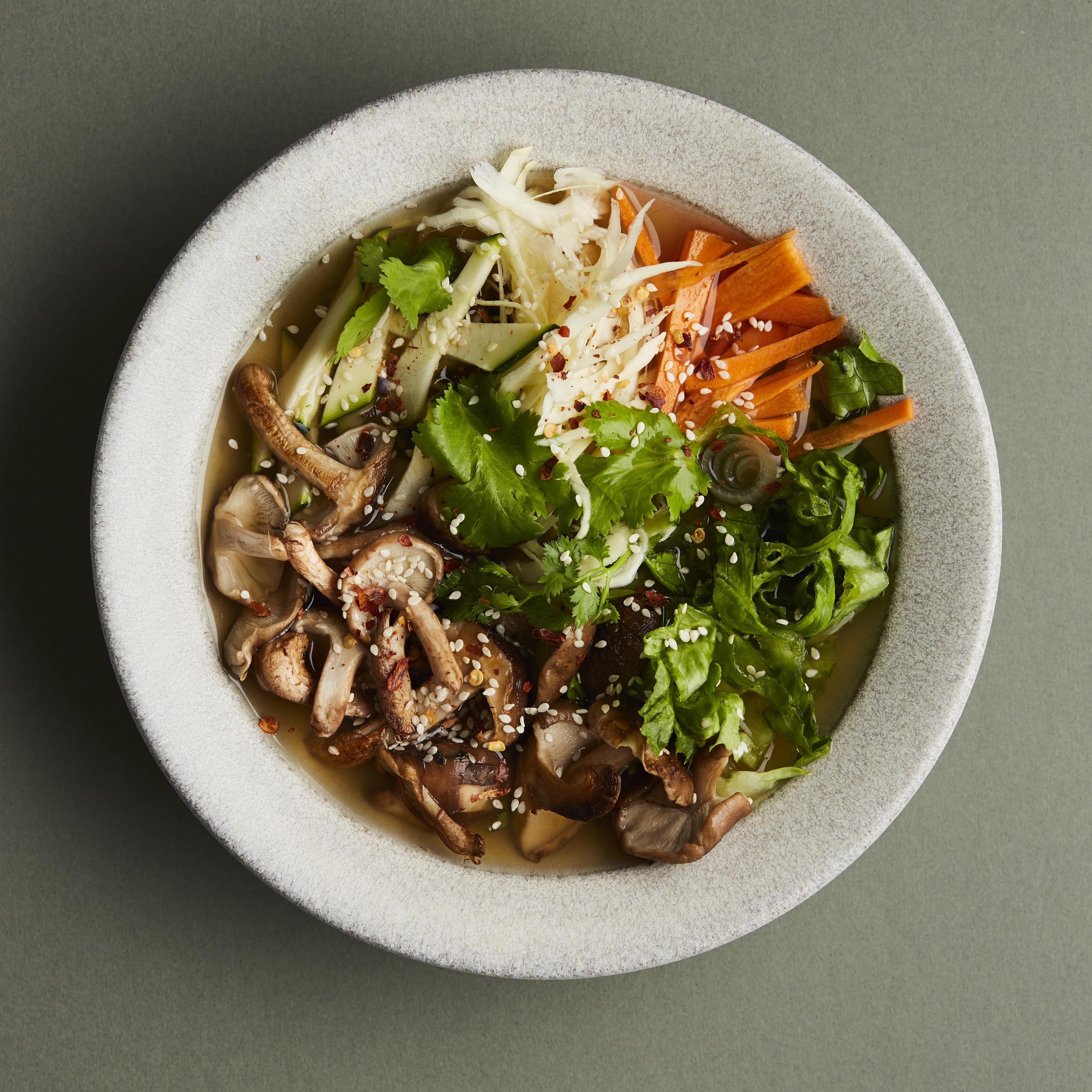13 May, 2019
How to improve your mood through your diet
Our mental health is just as important as our physical health, this was highlighted in 1946, when the World Health Organisation defined health as “a state of complete physical, mental and social well-being and not merely the absence of disease or infirmity”. We asked Rob Hobson, for his top 5 tips on eating for a healthier mind.
FoodOur mental health is just as important as our physical health, this was highlighted in 1946, when the World Health Organization defined health as “a state of complete physical, mental and social well-being and not merely the absence of disease or infirmity”. Meaning that you could seem to be in perfect health, with a healthy body weight, low cholesterol and good overall physical fitness – but that doesn’t necessarily mean you’re healthy.
It is therefore important that when you think about your diet you think about how it will impact your physical and mental health. There is a lot of evidence that suggests common foods from leafy green vegetables to simple root vegetables may positively affect your brain chemistry and help ward off stress, anxiety and depression.
Rob Hobson, co-author of our Detox Kitchen Bible, highlights the dietary considerations that we should be thinking about if we’re feeling a bit low:
1. FOCUS ON FOODS THAT SUSTAIN BLOOD SUGAR LEVELS
Ensuring blood sugar levels remain constant is important to avoid rapid spikes and dips as these will exacerbate feelings such as irritability and anxiety. Maintaining a diet that contains most foods with a low glycaemic load – those rich in complex carbohydrate, such as wholegrains, pulses and starchy vegetables, will ensure a slow release of sugar into the blood. This is because the fibre in these kinds of foods cause them to be digested slowly and thus limits the amount of insulin the body produces (slowing the transport of glucose into the cells). Also combining complex carbohydrates with protein will facilitate a slow, maintained release of energy.
2. GET MORE OMEGA 3
There is strong evidence that omega 3 fatty acids may help to relieve the symptoms of anxiety and depression.
Research has shown rates of depression to be lower in countries with high omega 3 intake, and that the level of this fatty acid tend to be markedly lower in sufferers. To increase your omega 3 try to incorporate more oily fish, dark leafy vegetables, walnuts, seeds and healthy oils into your diet.
3. INCREASE TRYPTOPHAN
Although some plant foods contain significant amounts of serotonin, the happiness hormone, serotonin can’t cross the blood-brain barrier. This means that dietary sources of serotonin can’t make it into the brain, but the building block of serotonin, an amino acid called tryptophan, can get from your mouth to your blood to your brain. Pumpkin seeds, cashew nuts, almonds, lentils, beans and split peas all contain good amount of tryptophan. As tryptophan uptake requires carbohydrate, ensuring that you are getting a balanced amount of carbs throughout the day is important.
4. EAT MORE PHYTONUTRIENTS / EAT MORE PLANTS!
Antioxidants and phytonutrients prevent the oxidation of molecules in our body (a process that creates free radicals – unstable molecules that can cause tissue damage and contribute to ageing). Research suggests that people who suffer with depression could be affected by free radicals causing nerve depletion in the emotion centres of their brain. This may explain why those who eat more fruit and vegetables (food rich in antioxidants and phytonutrients) appear less at risk of suffering from depression. In order to ensure you are getting a good amount of antioxidants and phytonutrients, try to eat 5-7 different coloured fruit and veg every day, as the pigments are where these nutrients are highest.
5. CUT DOWN THE STIMULANTS
As you would expect, caffeine will aggravate anxiety in some people, leaving you feeling on edge (caffeine releases the hormone adrenaline), so it’s best to avoid it in times of low-mood. Instead opt for herbals teas, including chamomile, bergamot and lemon balm, all of which can have a calming effect on the mind.
Whilst we believe that your diet can have a significant impact on your mental well-being it is also important to consider other lifestyle factors and how they may be impacting your mental health. If you need further information Mind.org is a great source for advice and tips.
Rob Hobson is a registered nutritionist (BSc, MSc, AFN), published author and food writer. Rob has 15 years of experience working with some of the UK’s leading food companies, government agencies, NHS and private clients as well as regularly writing in the media for publications including the Daily Mail online.



